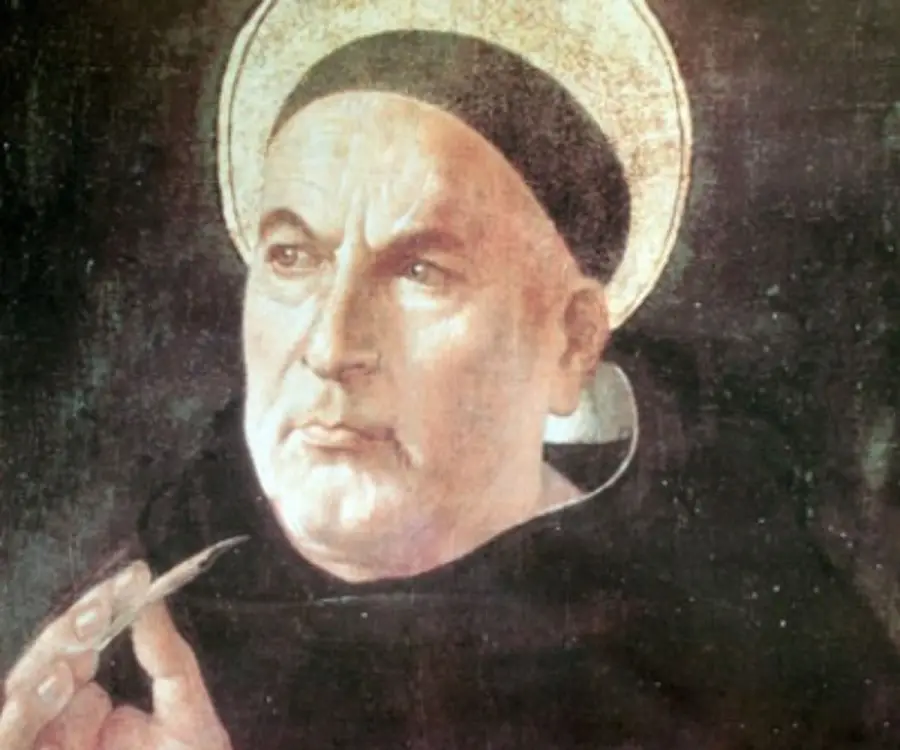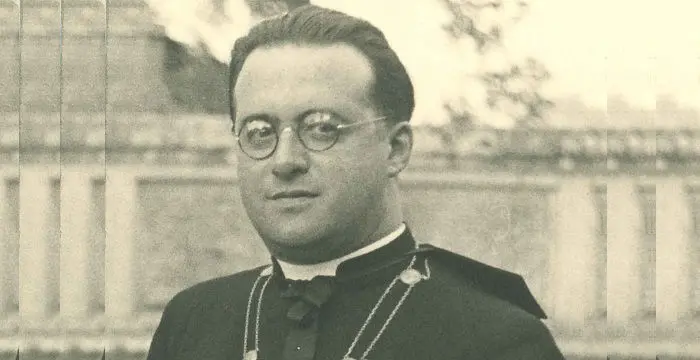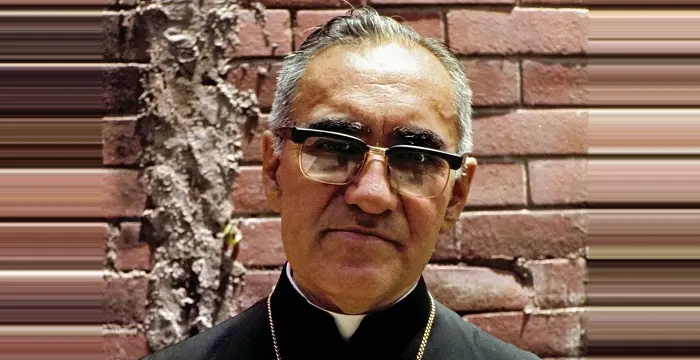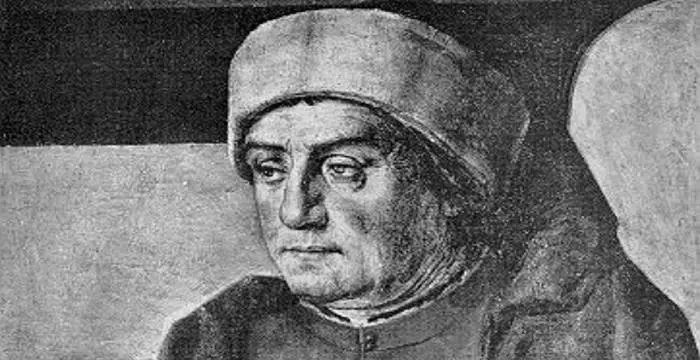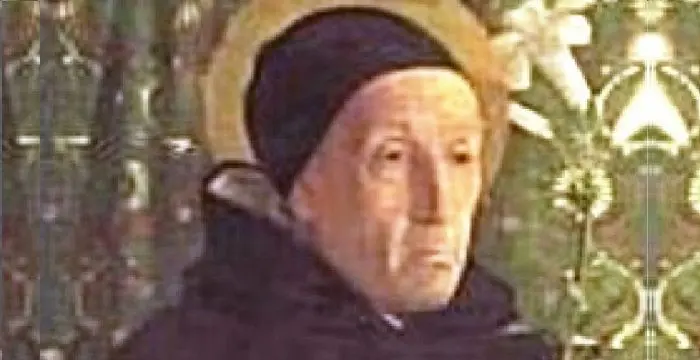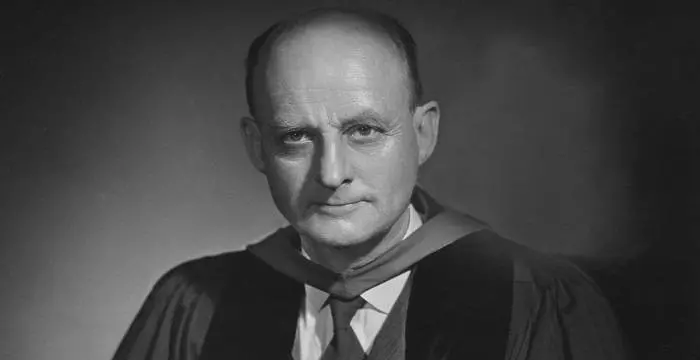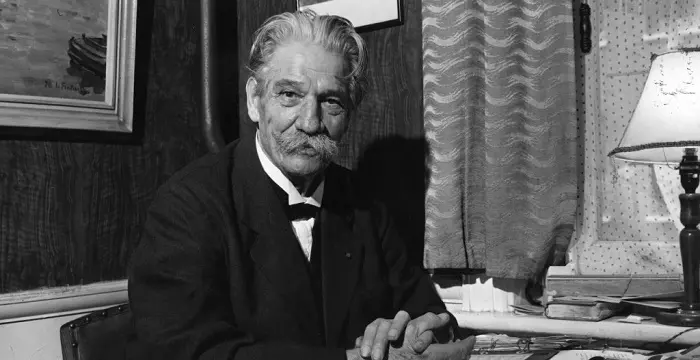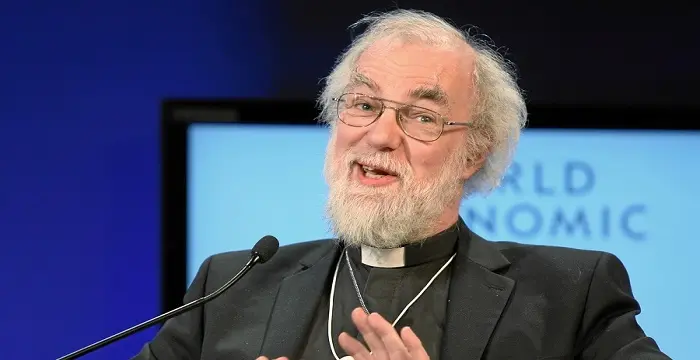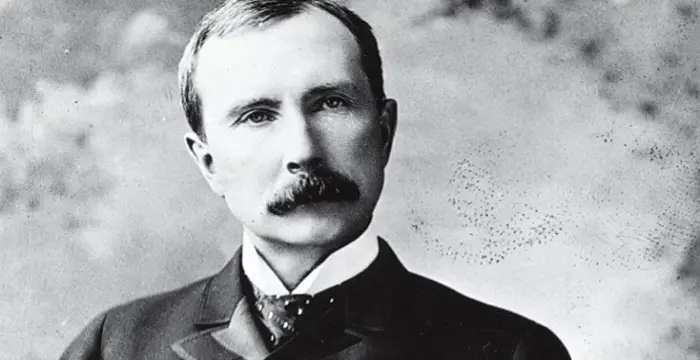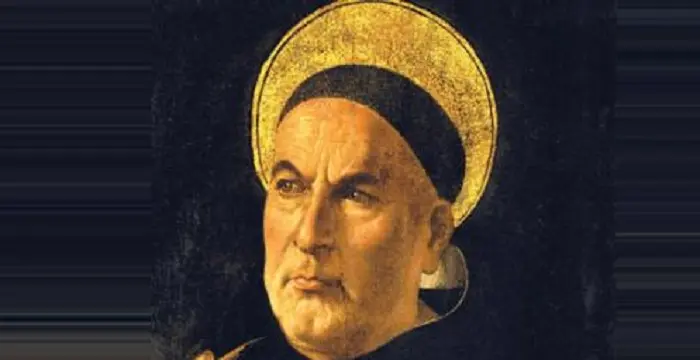
Thomas Aquinas - Intellectuals & Academics, Family and Childhood
Thomas Aquinas's Personal Details
Thomas Aquinas was an Italian Dominican theologian hailed as the father of the Thomistic school of theology
| Information | Detail |
|---|---|
| Birthday | January 28, 1225 |
| Died on | March 7, 1274 |
| Nationality | Italian |
| Famous | Intellectuals & Academics, Philosophers, Theologians, Priests, INTP |
| Known as | Saint Thomas Aquinas OP |
| Universities |
|
| Birth Place | Roccasecca |
| Religion | Catholicism |
| Gender | Male |
| Sun Sign | Aquarius |
| Born in | Roccasecca |
| Famous as | Philosophers, Theologian |
| Died at Age | 49 |
// Famous Philosophers
Martin Buber
One of the greatest philosophers to have ever walked on earth, Martin Buber contributions to philosophy is a long-standing one. Explore all about his profile, childhood, life and timeline here.
Lao Tzu (Laozi)
Lao Tzu was a legendary Chinese philosopher who wrote the important “Daodejing”. This biography profiles his childhood, life, career, achievements and timeline.
Alan Watts
Alan Watts was a famous British philosopher known for his Zen teachings and interpretations of Eastern philosophy. Read more about this great philosopher in the following article.
Thomas Aquinas's photo
Who is Thomas Aquinas?
Thomas Aquinas was an Italian Dominican theologian hailed as the father of the Thomistic school of theology. A Catholic priest, he was also a prominent philosopher, and jurist in the tradition of scholasticism. Originally named Tommaso d'Aquino, he is hailed as the most influential Western medieval legal scholar and theologist, and was instrumental in the development of several concepts in modern philosophy. He himself was greatly inspired by the ancient Greek philosopher Aristotle and attempted to integrate Aristotelian philosophy with the principles of Christianity. He was considered an authority of the Roman Catholic Church for his ability to effortlessly combine the theological principles of faith with the philosophical principles of reason. He was born as the youngest child in a large family of lower nobility in Italy. It is said that when his mother was pregnant with him, a holy hermit told her that her son would one day become a great learner and achieve unequaled sanctity. He decided to embark on a religious career as a young man despite vehement opposition from his family. He went on to earn his doctorate in theology and became a much respected scholar. He devoted much of his life to traveling, writing, teaching, public speaking and preaching. A prolific writer, he penned several commentaries on the Bible and discussions of Aristotle's writings on natural philosophy
// Famous Priests
Jim Elliot
Jim Elliot was an evangelical Christian Missionary. Explore this biography to know more about his childhood, career, profile and timeline.
Georges Lemaître
Georges Lemaitre was a Belgian scientist and priest. This biography of Georges Lemaitre profiles his childhood, life, career, achievements and timeline.
Óscar Romero
Óscar Romero the fourth Archbishop of San Salvador, who was assassinated within three years of his appointment. This biography provides detailed information about his childhood, profile, career and timeline
Childhood & Early Life
Thomas Aquinas is believed to have been born on 28 January 1225 in Aquino, Kingdom of Sicily, Italy. His father was Landulf, count of Aquino and his mother was Theodora, countess of Teano. He was the youngest of eight children in the family. His family members were descendants of Emperors Frederick I and Henry VI and were considered to be of lower nobility.
After completing his early education, he was enrolled at the studium generale (university) recently established by Frederick in Naples in 1239. Here he was introduced to the works of Aristotle, Averroes and Maimonides, and was greatly influenced by their thoughts.
During this time he also became acquainted with John of St. Julian, a Dominican preacher in Naples who would play a key role in the young man’s choice of a career. At the age of 19, Thomas decided to join the recently founded Dominican Order, much to the chagrin of his parents.
His family made several attempts to dissuade him from taking the step; they even held him as a prisoner for about a year in the family castles at Monte San Giovanni and Roccasecca. His brothers tried to distract Thomas by hiring a prostitute to seduce him. But the young Thomas was determined to dedicate his life to religion and remained steadfast in his resolve.
His mother realized that Thomas would not change his mind and helped him escape from his imprisonment so that he could follow his heart. He first went to Naples and then to Rome to meet Johannes von Wildeshausen, the Master General of the Dominican Order.
In 1245, he started studying at the Faculty of the Arts at the University of Paris, where he most likely met Dominican scholar Albertus Magnus. Soft-spoken and humble, Thomas was often mistaken to be dumb by his fellow students. However, Albertus recognized his potential and predicted that he would one day become a great scholar.
Later Life
Thomas Aquinas was ordained in Cologne, Germany, in 1250. He went on to teach theology at the University of Paris and also furthered his education under the tutelage of St. Albert the Great and subsequently earned his doctorate in theology.
He was appointed regent master in theology at Paris in 1256, a post he would hold till 1259. During his tenure, he wrote numerous works including ‘Questiones disputatae de veritate’ (Disputed Questions on Truth), ‘Quaestiones quodlibetales’ (Quodlibetal Questions), and ‘Expositio super librum Boethii De trinitate’ (Commentary on Boethius's De trinitate).
By the time his tenure ended, he had become quite famous and had gained a reputation for being an exemplary scholar. He spent many of the ensuing years preaching, teaching and writing, while also holding important positions, including that of a general preacher in Naples. He produced several works for Pope Urban IV such as the liturgy for the newly created feast of Corpus Christi and the ‘Contra errores graecorum’ (Against the Errors of the Greeks).
In 1265, he started teaching at the studium conventuale at the Roman convent of Santa Sabina where he taught the full range of philosophical subjects, both moral and natural. During this time he also began working on ‘Summa Theologiae’, his most important work.
He also wrote other important works such as like his unfinished ‘Compendium Theologiae and Responsio ad fr. Ioannem Vercellensem de articulis 108 sumptis ex opere Petri de Tarentasia’ (Reply to Brother John of Vercelli Regarding 108 Articles Drawn from the Work of Peter of Tarentaise).
He went back to Paris as a regent master at the University of Paris for a second time in 1268. He wrote two major works during this stint which lasted till 1272. One of them was ‘De unitate intellectus, contra Averroistas’ (On the Unity of Intellect, against the Averroists) in which he criticized the concept of "Averroism" or "radical Aristotelianism".
In 1272, he was asked to establish a studium generale wherever he liked by the Dominicans from his home province. Thus he took leave from the University of Paris to start work on the project. He established the institution in Naples and became its regent master. He had a profound religious experience in December 1273 following which he stopped writing.
Major Works
Thomas Aquinas is best known as the author of the ‘Summa Theologiae’. Even though he could not finish the work, it is regarded as "one of the classics of the history of philosophy and one of the most influential works of Western literature”. The Summa covers topics such as the existence of God, creation of Man, Man’s purpose, Christ, etc. He also wrote several important commentaries on Aristotle's works, including ‘On the Soul’, ‘Nicomachean Ethics’ and ‘Metaphysics’.
Death & Legacy
Thomas Aquinas embarked on a trip to Lyon, France, on foot to serve on the Second Council, in January 1274. However, he fell ill along the way at the Cistercian monastery of Fossanova, Italy, and died on 7 March 1274.
He was canonized on 18 July 1323, by Pope John XXII, 50 years after his death. He is honored with a feast day in some churches of the Anglican Communion.
// Famous Intellectuals & Academics
Bertil Gotthard Ohlin
Bertil Gotthard Ohlin was a famous Swedish economist. This biography profiles his childhood, family life & achievements.
Emily Greene Balch
Emily Greene Balch was an American economist, sociologist and pacifist who won the 1946 Nobel Peace Prize. This biography of Emily Greene Balch provides detailed information about her childhood, life, achievements, works & timeline.
Martin Buber
One of the greatest philosophers to have ever walked on earth, Martin Buber contributions to philosophy is a long-standing one. Explore all about his profile, childhood, life and timeline here.
Thomas Aquinas biography timelines
- // 28th Jan 1225Thomas Aquinas is believed to have been born on 28 January 1225 in Aquino, Kingdom of Sicily, Italy. His father was Landulf, count of Aquino and his mother was Theodora, countess of Teano. He was the youngest of eight children in the family. His family members were descendants of Emperors Frederick I and Henry VI and were considered to be of lower nobility.
- // 1239After completing his early education, he was enrolled at the studium generale (university) recently established by Frederick in Naples in 1239. Here he was introduced to the works of Aristotle, Averroes and Maimonides, and was greatly influenced by their thoughts.
- // 1245In 1245, he started studying at the Faculty of the Arts at the University of Paris, where he most likely met Dominican scholar Albertus Magnus. Soft-spoken and humble, Thomas was often mistaken to be dumb by his fellow students. However, Albertus recognized his potential and predicted that he would one day become a great scholar.
- // 1250Thomas Aquinas was ordained in Cologne, Germany, in 1250. He went on to teach theology at the University of Paris and also furthered his education under the tutelage of St. Albert the Great and subsequently earned his doctorate in theology.
- // 1256 To 1259He was appointed regent master in theology at Paris in 1256, a post he would hold till 1259. During his tenure, he wrote numerous works including ‘Questiones disputatae de veritate’ (Disputed Questions on Truth), ‘Quaestiones quodlibetales’ (Quodlibetal Questions), and ‘Expositio super librum Boethii De trinitate’ (Commentary on Boethius's De trinitate).
- // 1265In 1265, he started teaching at the studium conventuale at the Roman convent of Santa Sabina where he taught the full range of philosophical subjects, both moral and natural. During this time he also began working on ‘Summa Theologiae’, his most important work.
- // 1268 To 1272He went back to Paris as a regent master at the University of Paris for a second time in 1268. He wrote two major works during this stint which lasted till 1272. One of them was ‘De unitate intellectus, contra Averroistas’ (On the Unity of Intellect, against the Averroists) in which he criticized the concept of "Averroism" or "radical Aristotelianism".
- // 1272 To Dec 1273In 1272, he was asked to establish a studium generale wherever he liked by the Dominicans from his home province. Thus he took leave from the University of Paris to start work on the project. He established the institution in Naples and became its regent master. He had a profound religious experience in December 1273 following which he stopped writing.
- // 7th Mar 1274Thomas Aquinas embarked on a trip to Lyon, France, on foot to serve on the Second Council, in January 1274. However, he fell ill along the way at the Cistercian monastery of Fossanova, Italy, and died on 7 March 1274.
- // 18th Jul 1323He was canonized on 18 July 1323, by Pope John XXII, 50 years after his death. He is honored with a feast day in some churches of the Anglican Communion.
// Famous Theologians
Anicius Manlius Severinus Boethius
Boethius was an early 6th century Roman senator and philosopher best known for his treatise ‘Consolation of Philosophy’. This biography of Boethius provides detailed information about his childhood, life, achievements, works & timeline.
Meister Eckhart
Explore this biography to know the profile, childhood, life and timeline of Meister Eckhart, who brought in a great change in Germany with his groundbreaking thesis and ideas.
Reinhold Niebuhr
Reinhold Niebuhr was a German-American theologian, intellectual and political commentator who wrote the famous book, ‘Moral Man and Immoral Society’. This biography provides information about his profile, childhood, life and timeline.
Albert Schweitzer
Albert Schweitzer was a German born French theologian, organist, philosopher, physician, and medical missionary. Check out this biography to know about his childhood, family life, and achievements.
Rowan Douglas Williams
Rowan Douglas Williams is an Anglican bishop, poet and theologian. This article traces his childhood, life achievements, works & timeline.
John Calvin
John Clavin was a French theologian & pastor who played an important role in the Protestant Reform movement. Check out this biography to know about his childhood, family life, achievements and other facts related to his life.
Thomas Aquinas's FAQ
What is Thomas Aquinas birthday?
Thomas Aquinas was born at 1225-01-28
When was Thomas Aquinas died?
Thomas Aquinas was died at 1274-03-07
Where was Thomas Aquinas died?
Thomas Aquinas was died in Fossanova Abbey
Which age was Thomas Aquinas died?
Thomas Aquinas was died at age 49
Where is Thomas Aquinas's birth place?
Thomas Aquinas was born in Roccasecca
What is Thomas Aquinas nationalities?
Thomas Aquinas's nationalities is Italian
What was Thomas Aquinas universities?
Thomas Aquinas studied at University of Naples Federico II
What is Thomas Aquinas's religion?
Thomas Aquinas's religion is Catholicism
What is Thomas Aquinas's sun sign?
Thomas Aquinas is Aquarius
How famous is Thomas Aquinas?
Thomas Aquinas is famouse as Philosophers, Theologian



